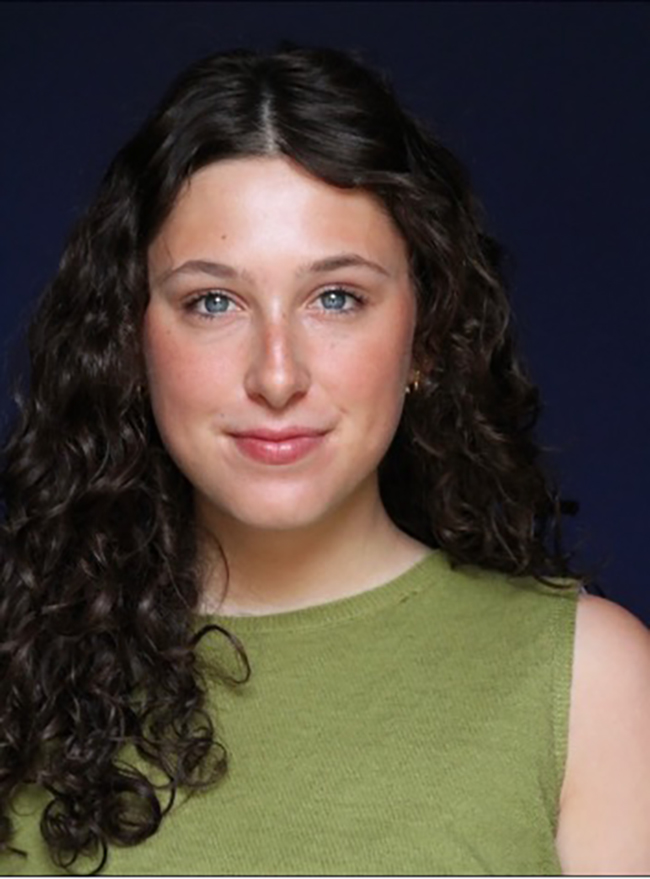CGU celebrates 20 years of poetry, groundbreaking writers
This week, a who’s who of writers and poetry lovers gathered to celebrate the 20th anniversary of the Kingsley and Kate Tufts poetry awards, given each year to a new writer of startling talent and a mid-career poet who has created work of significance.
Tufts prize alumni, Claremont Graduate University president Debbie Freund and literary luminaries like Asian-American writer Maxine Hong Kingston were on hand at an awards ceremony and dinner hosted by CGU on Thursday, April 19 to speak to the talents of the latest winners and the importance of poetry. The day before, Tufts poets new and old gathered in panels to discuss topics like the experience of the developing poet.
Their voices were diverse, but all agreed on a few key points. Poetry matters. Poetry is pleasurable. And while the source of poetry is mysterious, it is important that there are people who spend their lives in search of the metaphors, word pictures and syntactical music that help define what it is to be a human being.
“Thinking does not seem to be the way to get to poetry. Let’s contemplate that the poet is the one who waits forever to find out why,” said Ms. Kingston, a National Book Award winner and author of The Woman Warrior, a memoir that has become the most studied book in modern university education.
Ms. Kingston acknowledged that the question of who is a poet eludes definitive answers, but shared 4 nouns she believes best describe the avocation.
“Beauty. Truth. Oracle. Bard. Congratulations, dear poets, and thank you.”
Practical magic
The Kate Tufts award comes with $10,000, while the Kingsley Tufts prize carries a $100,000 purse, the largest monetary award in the world bestowed to a poet. Being selected for a Tufts award is prestigious, but the intent is far more practical than mere accolades.
Kate Tufts, widow of shipbuilding executive and noted poet Kingsley Tufts, created the Kingsley Tufts Poetry Award in 1993 and the Kate Tufts Discovery Award the following year to “enable a poet to work on his or her craft for a while without paying bills.”
For Timothy Donnelly, winner of this year’s Kingsley Tufts award, the prospect of settling looming credit card bills is life-changing. Though he has 3 careers (poet, Columbia University professor and poetry editor of The Boston Review), raising a family in Brooklyn on one salary “is not easy to do.”
Given some breathing room, Mr. Donnelly knows exactly what he plans to do next: go to the grocery store. A fan of cooking and the father of 2 small children, he will fill his cart with hanger steaks, asparagus, sparkling white wine and flowers.
In the midst of a world filled with pain and injustice, the poet says small dividends like a supermarket spree make it easier to see “the beauty and the pleasure.”
“I’m going to feel what it’s like to be secure,” he said.
Mr. Donnelly won the Kingsley Tufts prize for The Cloud Corporation, a collection that explores the challenge of maintaining a positive identity in the face of wolf-at-the-door financial concerns and amidst a corporate culture.
The title poem stems from “what-ifs” that are imaginative yet somehow not far-fetched. “What if there were a corporation whose function was to create clouds? What if many people preferred these facsimiles to the real thing? What if these man-made clouds were to replace the natural formations?”
Mr. Donnelly takes a nearly-apocalyptic view of the current state of economic and political affairs, in which a multinational corporation can act as an all-powerful “fictive person.”
“Always around me, on my body, in my mouth, I fear them/and their love of money, everything I do without thinking to help them make it. And if I am felt to be/beside the point, I have wanted that, to live apart/from what depends on killing me a little bit to keep/itself alive…”
And yet, Mr. Donnelly believes in the redeeming power of love, as evidenced in poems like “The New Intelligence,” an ode to his wife, Lynn Melnick. “I am calling/a person so beautiful to me that she has seen my awkwardness/on the actual sidewalk but she still answers anyway.”
Ms. Melnick was present along with the Donnelly children at the CGU awards ceremony, held at the Garrison Theater. She is moved by the fact that her husband—whom she says is quite humble—has been so profoundly recognized.
“When you write, it’s sort of in a vacuum,” Ms. Melnick said. “He wrote this book exactly the way he wanted to. So for it to be so well-received is a validation of all the hard work.”
The science of art
While Mr. Donnelly chronicles man’s struggle against the external forces of corporate greed, Katherine Larson, winner of the 2012 Kate Tufts award, writes about a more internal dichotomy.
A molecular biologist and field ecologist, Ms. Larson uses poetry to meld the left-brain world of science with the more intuitive region of poetry. “The disciplines are disparate [but] they come together at a point of inspiration.”
Both science and poetry demand a willingness to work “in the zone of not knowing the story.” And both science and poetry demand rigor, Ms. Larson said. While poetry may seem like a stream-of-consciousness exercise in catharsis, for her it takes long hours of craft and revision.
It’s a discipline that yields practical results for Ms. Larson when she’s training budding scientists, because it allows her to harness the power of metaphor.
“How else can you explain the unknown in terms of the known?”
Being a scientist certainly informs Ms. Larson’s poetry. Most of her poems touch on nature, and she admits to an over-weaning fondness for writing about cephalopods. It also gives her professional freedom.
“Working in science has allowed me to have poetry as my vocation. It has allowed me the space to risk and experiment without having to worry about health insurance.”
The pursuit of science has also helped Ms. Larson cultivate a powerful attention to the sensory detail, noted Linda Gregerson, 2003 Kingsley Tufts award-winner and chair of the Tufts jury.
“I am absolutely convinced that the combination of work she does in the world is absolutely central to her luminous attentiveness,” Ms. Gregerson said while presenting the 2012 Kate Tufts prize. “We often imagine wonder as a quality we have to lose. [Ms. Larsen’s] work is a stunning reminder that wonder can be a cultivated skill.”
Ms. Larson’s “Love at thirty-two degrees” is an image-rich example of what happens when scientific inquiry collides with the human urges for love and meaning.
“Last night I threw my lab coat in the fire/& drove all night through the Arizona desert/with a thermos full of silver tequila/It was the last of what we bought/on our way back from Guadalajara—/desert wind in the mouth, your mother’s/beat-up Honda, agaves/twisting up from the soil/like the limbs of cephalopods.”
Having completed her first book of poetry, Ms. Larson feels more ready than ever to embrace her calling as a poet. The mother of an 11-month-old, she divided her recent maternity leave between caring for her baby and writing new poems. The time spent wholly as poet, and the recognition of the Kate Tufts award jury have infused her with a greater sense of purpose as a writer.
“It’s clear to me that writing is so much a part of my being in the world,” she said. “When I’m writing I’m more alive.”
—Sarah Torribio







0 Comments